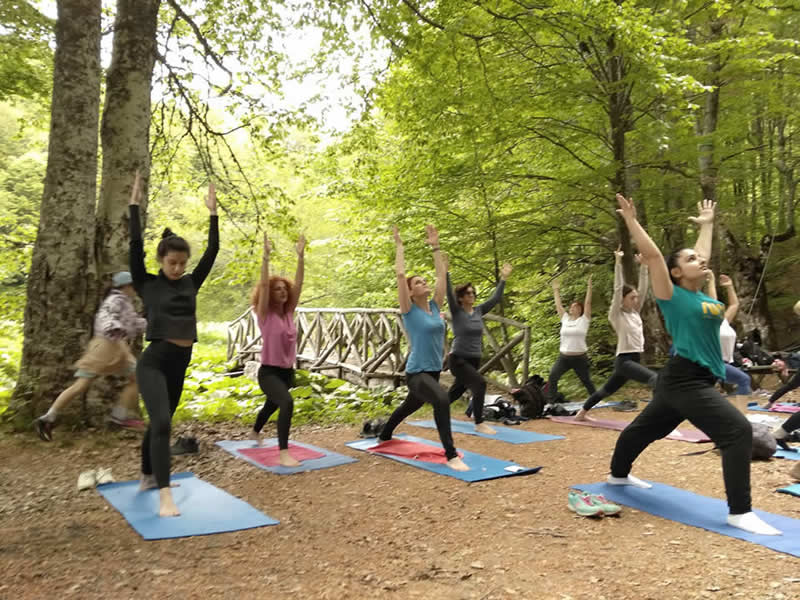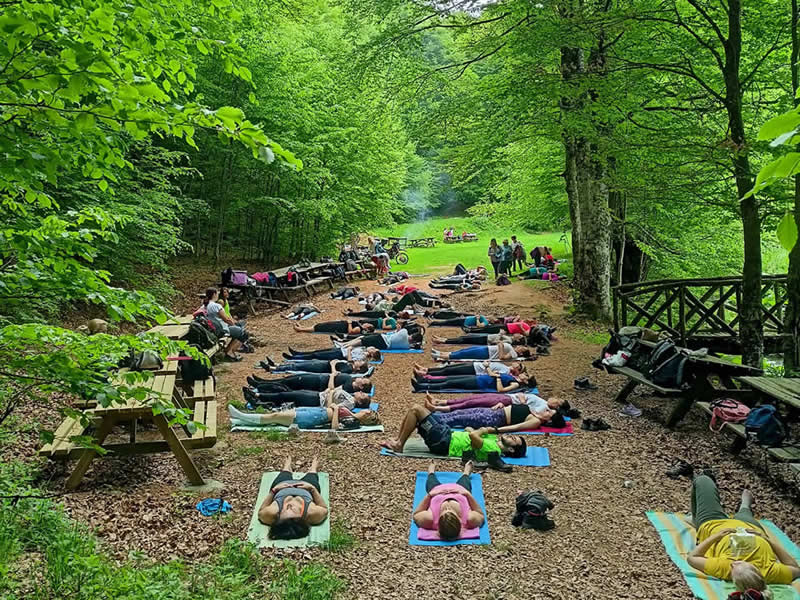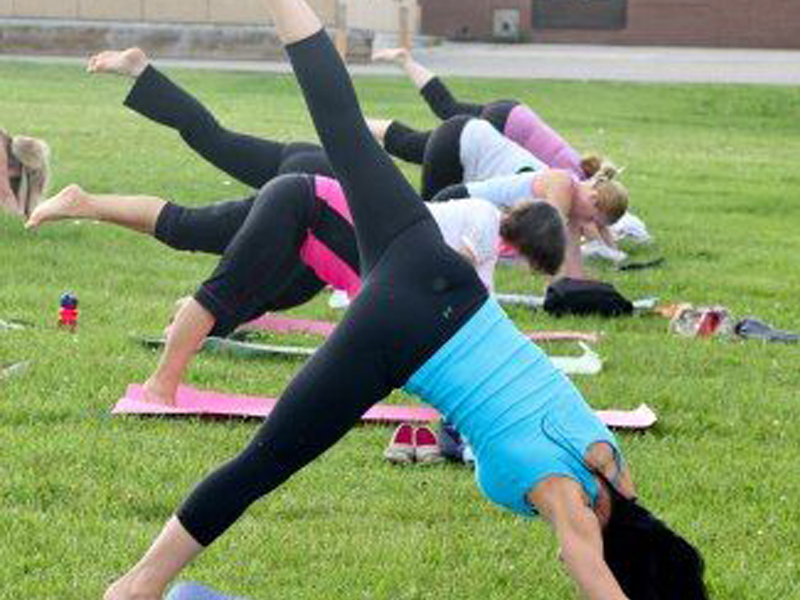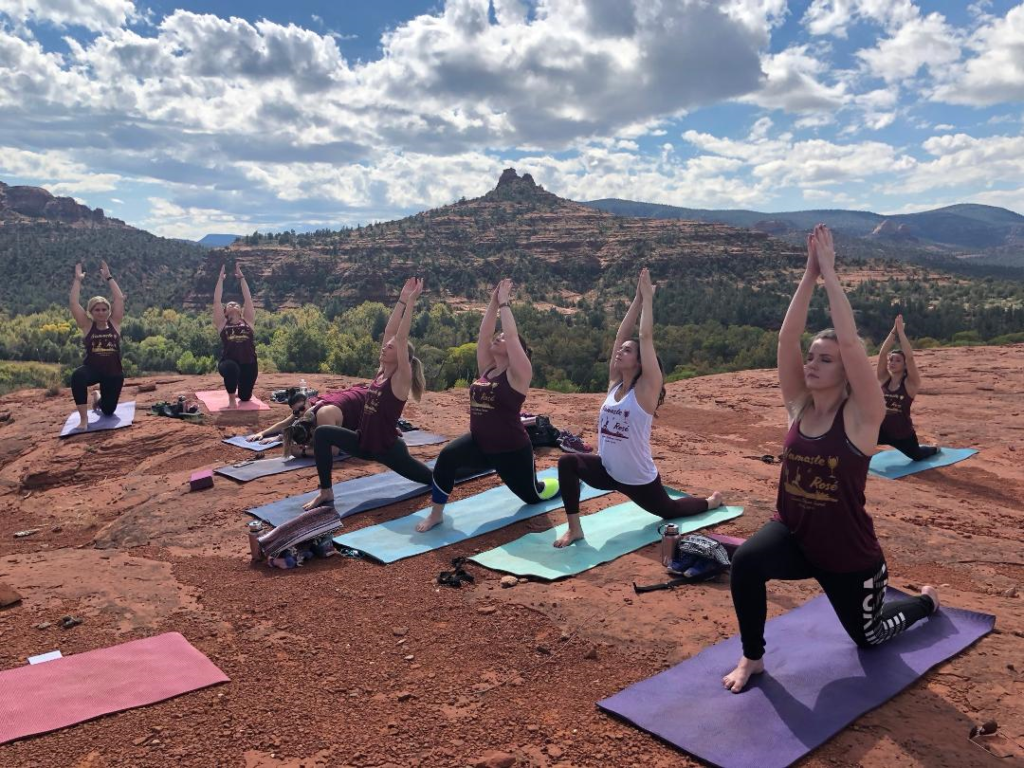For many years, yoga practice was mostly confined to gyms and studios, while hiking was reserved for the trails. But after taking a few outdoor yoga classes in cool city locations I was reminded how yoga and breathing practices can be integrated in many places, including on hikes.



Yoga and hiking have one great thing in common: the love of nature! But what other factors can connect these two activities?
Let’s take a closer look at the benefits of hiking and yoga, to understand how much they complement each other and of course how compatible they can be with each other.
The hiker begins with a longing, some curiosity and a basic respect for nature. He follows the path and actually absorbs the experiences that are revealed. He observes every little detail, adapts harmoniously and learns to move through nature observing all those elements that surround him. He appreciates the colours of each season and admires the flora and fauna that he encounters while living the moment to the fullest.
He moves more slowly at first, finding his rhythm, listening to his breathing and then walks with more determination. At some point, he may gasp, slow down or take a short break until he catches his breath again and discovers the rhythm that will allow him to continue his hiking happily.
So, as he opens up on his path and walks for hours, his body is nourished with fresh oxygen and his soul with rich senses which are intensified. The mind concentrates on the present and the mind is cleansed of unnecessary thoughts. Simply put, hiking ultimately works as a kind of deep meditation, as the conditions require concentration, whether the trail is perfectly passable or demanding.
But how does yoga relate to hiking?
In a phrase one could say that yoga is perceiving the importance of breathing. The Sanskrit word Yuj translates as union, where it explicitly refers to the union of the body with the mind. So, yoga, which does not refer to specific religions, races or gender, studies the body and the mind through the very function of breathing. And when breathing takes place in nature, then the benefits are twofold, as the awareness of the body and the mind occur in the most ideal conditions.
The pure oxygen, the colors of nature, the sounds of animals and the cool breeze make the experience of practicing yoga in the forest beneficial and more refreshing.
It is no coincidence that the postures, the asanas as they are called, have borrowed their names from the elements of nature and the animal kingdom. Maybe as a sign of respect for the environment, but certainly due to the fact that nature and animals have a lot to teach us about ourselves, our bodies and our inner world.
Some of these postures may seem uncomfortable and difficult, and that is because our breath is cut sort and we pant. But just as the hiker will start at a slower pace and then will intensify his effort later once breathing is comfortable and he has found his rhythm. Similarly, the yogi will start with less strenuous postures and then as his breathing allows which in itself is also an exercise continues to more advanced postures.
What are the benefits of yoga for the hiker?
On a physical level, yoga certainly helps to stretch muscle groups and ligaments, thus relieving tension in areas that are strained throughout the hike. It also generally strengthens all the muscle groups in the body and intensifies endurance, as the hiker learns to manage his breathing to save energy and thus channel it where it is needed. If the hiker stops his course and has a session of yoga then continues on the path, he will feel lighter and more relaxed and more energetic to enjoy the rest of the route.
But also, on a spiritual and mental level, those who have tried to do yoga during hiking, feel that they are more deeply connected to the environment and its elements, as well as a sense of absolute “grounding” from the contact of the body with the earth. The senses become more intense causing the secretion of serotonin in the body, which in turn causes euphoria and the general feeling of well-being. For a while the mind leaves behind the hustle and bustle of the mind and enjoys the simple things in life.
Our body benefits by consciously providing it with oxygen as well as releasing toxins and tensions. We adjust our performance and at the same time exercise our balance, both physically and mentally.
On a final note, and because we once again refer to activities that take place in nature, let us remind ourselves that we always leave the environment cleaner than we found it!
Happy Hiking & Yoga-ing!


